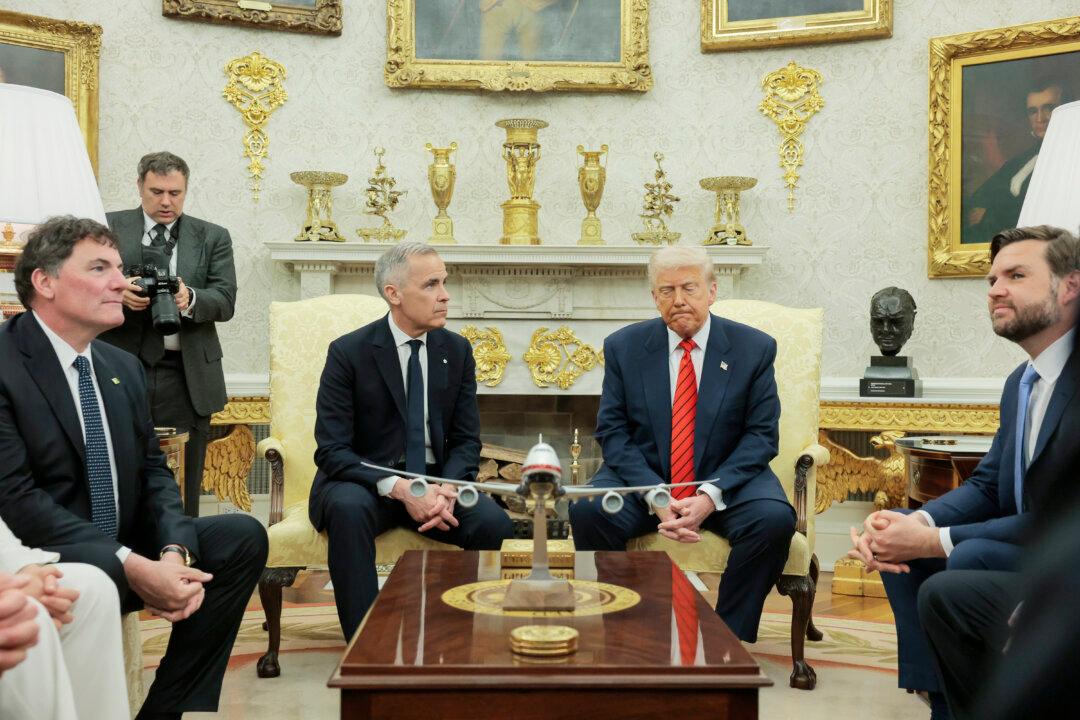WASHINGTON—President Donald Trump hosted Canada’s new prime minister, Mark Carney, at the White House on May 6 for high-stakes talks focused on trade and security.
The meeting came amid heightened tensions between the two allies, following Trump’s imposition of steep tariffs on Canadian products and ongoing remarks suggesting that Canada should become the 51st U.S. state.





